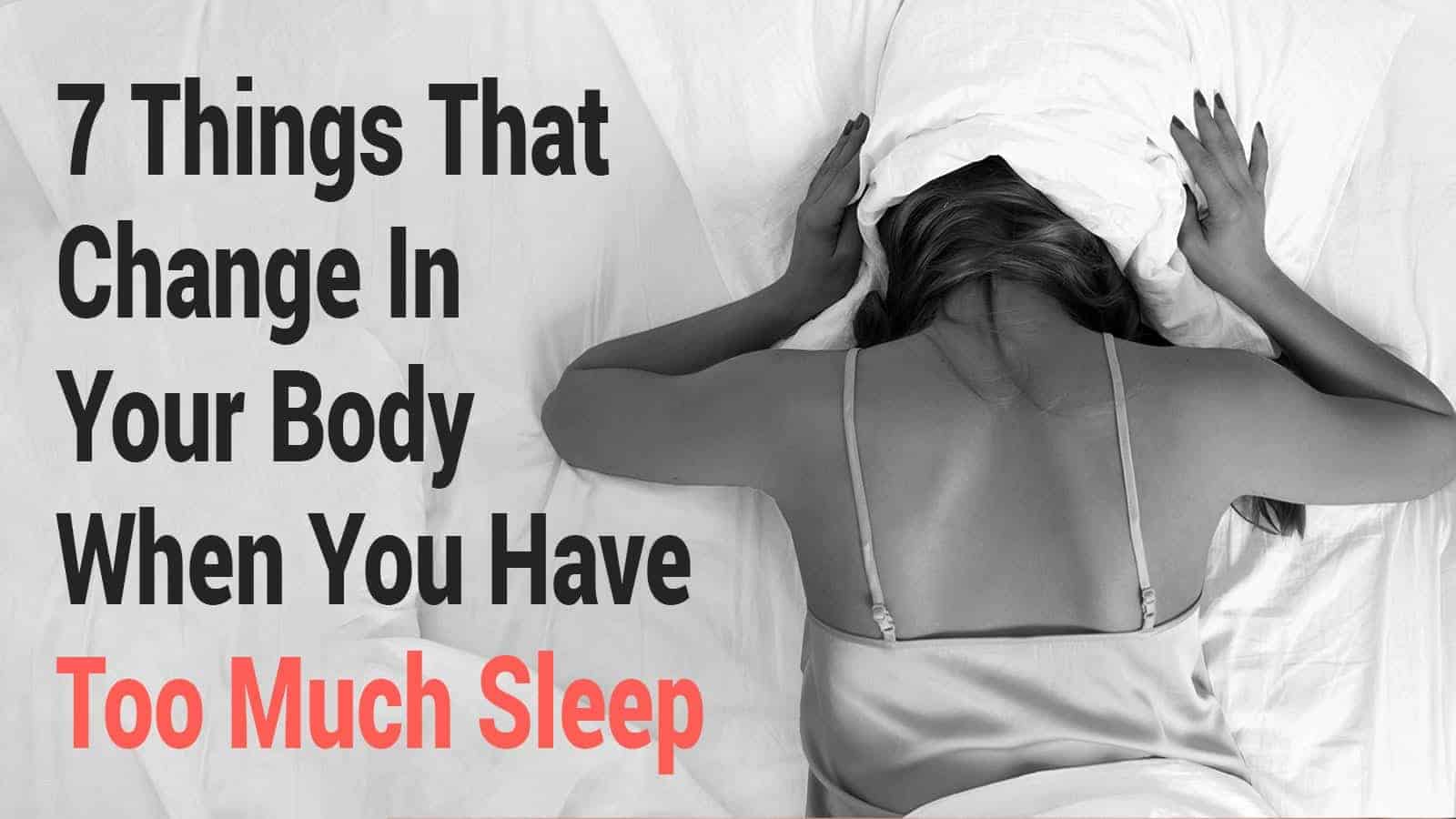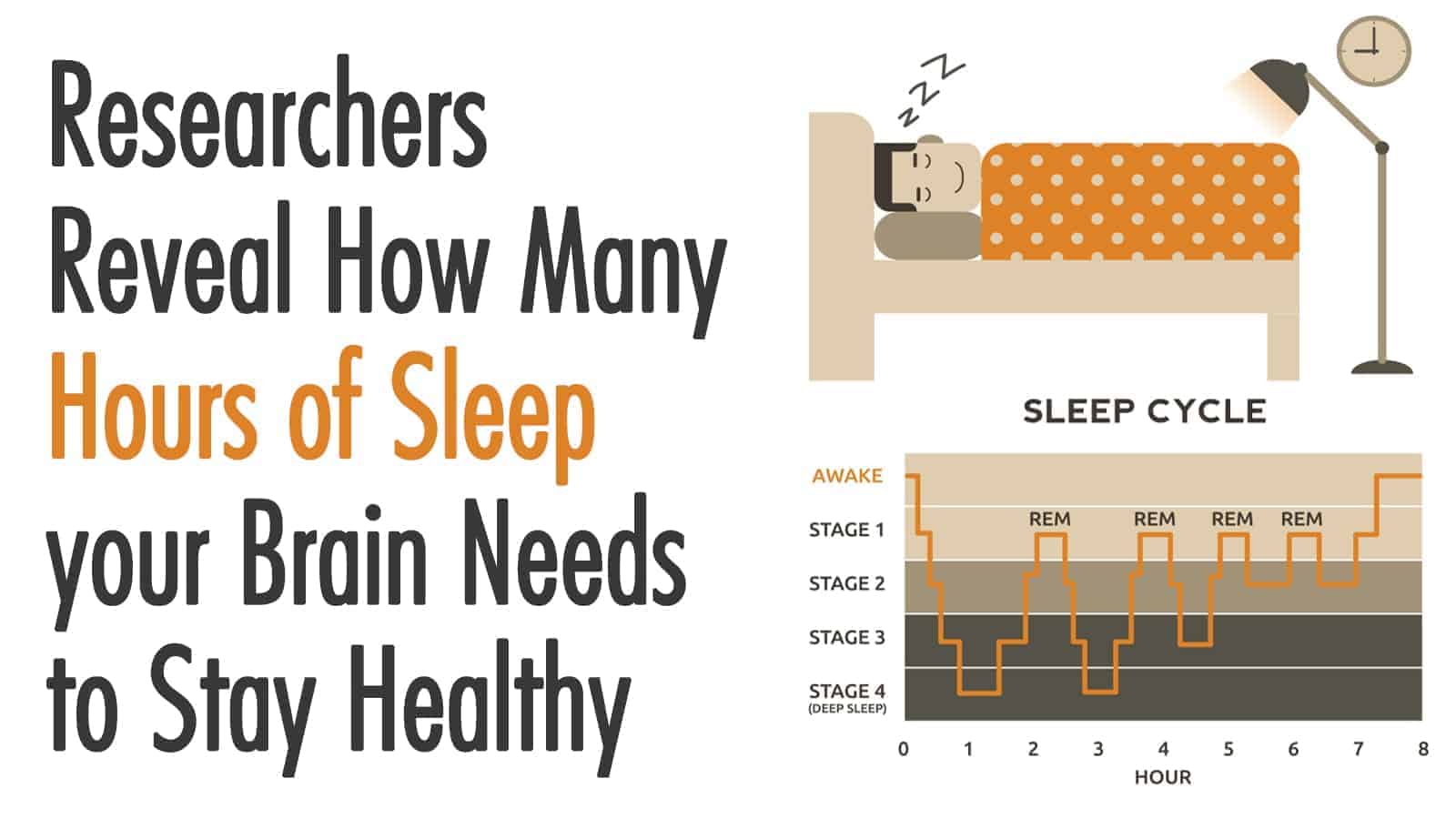You already know that getting enough sleep and rest is important. Sleep deprivation has been linked to different serious health problems that may weaken your immunities and impact the quality of your life. But while sleep deprivation can seriously affect your health and well-being, too much sleep can also be just as bad for your body.
Experts who conducted studies in the journal Diabetes Care and the National Institutes of Health showed that too much sleep is linked to weight gain. In fact, people who have more than eight hours of sleep at night tend to gain weight faster than those who get moderate amounts of sleep.
The National Sleep Foundation stated that the most ideal sleep hours are between seven to nine. Anything less or in excess of these hours can bring detrimental changes to your body. Aside from the weight gain, below are some things that can change in your health and well-being when you have too much sleep.
Things That Change In Your Body When You Have Too Much Sleep
“Even where sleep is concerned, too much is a bad thing.” – Homer
1. You get a massive headache in the morning
Too much sleep may make you feel groggy when you wake up. It’s like a hangover effect when you haven’t really been drinking. It may feel like experiencing a jet lag or dealing with a different shift at work.
- Experts say that this “sleep drunkenness” indeed makes your body sluggish and causes a headache because your brain is confused about its cycle.
- In other words, your biological clock gets thrown off when you sleep too much. Your brain cells signal different things than what your body is really experiencing.
- When you have too much sleep, the neurotransmitters in your brain fluctuates, thus leading to a headache.
- It’s also possible your body is experiencing some sort of withdrawal because you have slept past your usual time for breakfast or coffee drinking.
- It won’t be surprising if you are dehydrated or low on blood sugar when you wake up.
It’s imperative, therefore, that you go to bed and get up at the same time every day. Make your bedroom an ideal and positive environment for sleeping by keeping it cool, quiet, and dimly lit. Otherwise, you’ll get a headache and your body will feel heavy and tired for the rest of the day.
2. You’ll experience more pain in the body
If you’re spending more time sleeping, you’re reducing your physical activities. The extra time you spend in bed may also make your body ache all over and cause back problems. If you are curled or settled on one position in bed for a long time, this can lead to body stiffness when you oversleep.
In the past, experts used to recommend getting more sleep if you’re having back pains and other discomforts in your body. But today, lying down for too long leads to lack of movement. Experts advise that you should get into a regular exercise program if you have body pains.
While oversleeping may be due to a long and tiring week at work, sometimes staying in bed longer may also indicate other health issues. If the body pains are causing more problems and discomfort, even as you’re trying to recuperate and recover, get a proper medical evaluation to see if there are any underlying issues to your health.
3. You raise your risk for stroke or heart attack
Oversleeping is not harmful if you do need it occasionally. However, if it’s occurring more frequently, it could be your body’s way of telling you that your sleep is not effectively helping your body recover, rejuvenate, and recharge. As a result, your heart works more than usual to help the rest of your organs function well.
- If you tend to oversleep, it’s possible you’re experiencing sleep apnea.
- This is a condition that impacts the quality of your sleep, where you’re in bed longer but you’re not really sleeping well.
- Untreated sleep apnea has ties to stroke and heart attack.
- It interrupts a restful sleep, sometimes by as much as 30 times a night, so you experience arrhythmia, high blood pressure, and even stroke.
Experts at the Chicago School of Medicine has tied oversleeping to higher risks of heart diseases just like sleep deprivation. According to a study in the JAMA Network, people who have more than eight hours of sleep are twice as likely to have angina. A similar study in the International Journal of Cardiology also showed that people with a longer sleep duration may be 34 percent more likely develop cardiovascular problems.
Experts also learned that women who have sleep issues, whether it’s oversleeping or sleep deprivation, are more at risk for stroke or heart attack than men. But they are still unclear on what mechanisms in the body can explain the direct link to oversleeping and heart problems.
4. You’ll also raise your diabetes risks
Your metabolism changes when you sleep too long. Once that happens, your body may likely not respond well to the level of glucose in your blood. You may easily raise your risk of developing diabetes because of this, along with the lack of physical activity or movement that should have burned the glucose for energy, as per a study in the Journal of Clinical Endocrinology and Metabolism.
- If you keep the habit of sleeping for more 10 hours at night, you can become obese within a period of six years.
- Obesity and diabetes are closely tied, as the disease makes your body more insulin resistant.
- Balance your sleeping habits and instill discipline and intention in sleeping right.
- Set your alarm clock to go off after seven to eight hours.
- When you get up, open the curtains and get some natural light in your bedroom.
- This will help your hormones kick in and feel more alert so that you won’t go back to feeling sleepy.
- Practice this habit every day and you will see some positive results in no time.
5. You’ll feel more depressed
Do you know that oversleeping is a symptom of depression? Often, people who are depressed suffer from poor sleep quality so they tend to sleep more or sleep on an irregular schedule.
Oversleeping due to depression is called hypersomnia. It’s different from a typical sleepiness that happens to everyone. Hypersomnia is linked to a neurologic disorder that often ties with a mental condition. But experts are still trying to figure out the exact causes of hypersomnia. Some attribute this to environmental factors or a genetic predisposition. Others, however, believe hypersomnia might be triggered by a depressant hormone in the brain.
A study in the Nature and Science of Sleep showed that people who are depressed develop low levels of hypocretin-1 and hypocretin-2. These molecules are responsible for keeping the brain active and awake. A low supply in the brain can induce sleepiness.
Have you experienced hypersomnia at least three times a week for the last three months? Have you done all you can to get a good night’s sleep? You might need to visit a therapist to get a proper mental health diagnosis. You may actually be depressed.
It might help, however, if you also switch to a healthier diet and increase your exercise routines. A change in lifestyle and activities might help. If possible, seek support groups to help you gain more resources about sleep and mental health.
6. You’ll get a foggy brain
Apart from a headache, you might also experience a brain fog when you oversleep. This wrecks your concentration and muddles your thoughts so you’re more challenged to complete tasks at work. You also become forgetful when your brain is foggy and you may experience having a hard time with comprehension and recall during a conversation.
Brain fog happens when you lack sleep just as much as when you oversleep. This once again proves just how much important it is to follow a proper sleeping schedule every day. A number of factors are at play with a foggy head:
- The level of stress hormones spikes in your brain, which triggers a faster rate of electrical activity so your thoughts can be easily distracted.
- Your body’s stress responses are also activated frequently so it changes the functions of your brain.
- The stress hormones block the hippocampus, which your brain relies on for learning and memory.
- An elevated level of stress hormones makes your brain and body tired faster. Therefore, you tend to feel sleepy rather than active, and your brain’s processing is slower.
If you continue with too much sleep that affects your brain’s activities, you may put yourself at risk for developing dementia earlier, as per the Journal of the Alzheimer’s Association. So, while sleep is important, you also have to protect your brain’s health from structural changes because of oversleeping.
7. You increase your risk of dying
Because of higher risks for obesity, diabetes, and heart problems, sleeping too much can have serious consequences. Experts in a study found on PLOS One showed that there was a significantly higher death rate among people above 30 years old who had more than eight hours of sleep than those who managed six to eight hours of sleep only.
The experts looked into the records of a million people for a six-year period for this study. Other variables like age, exercise, and diet, as well as drinking and smoking, were also taken into consideration.
Based on their findings, people who had seven hours of sleep had longer survival rates. The researchers also said that there are no pressing health concerns to sleeping longer, if you’re getting the recommended hours every night.
Final Thoughts On Things That Change In Your Body When You Have Too Much Sleep
Everyone goes through a phase of struggling to get out of bed in the morning. However, if your sleep problems are affecting your day-to-day activities and productivity, it might be time to see a specialist. Untreated sleep disorders can lead to more health issues in the long run, so don’t delay in consulting an expert.
The earlier you address this problem, the more positive your chances are for recovery. Make sleep quality a priority in your life. Obviously, too much sleep can greatly impact your overall health.
When you follow a consistent sleeping plan, your body and mind will soon get used to it. One day, you won’t need an alarm clock anymore. You’ll wake up refreshed and energized to take on the day.
Keep in mind that being healthy is not merely the absence of a condition or a disease. It’s also having a positive mindset, feeling great physically, and maintaining a pleasant social relationship with yourself and the people around you.


















